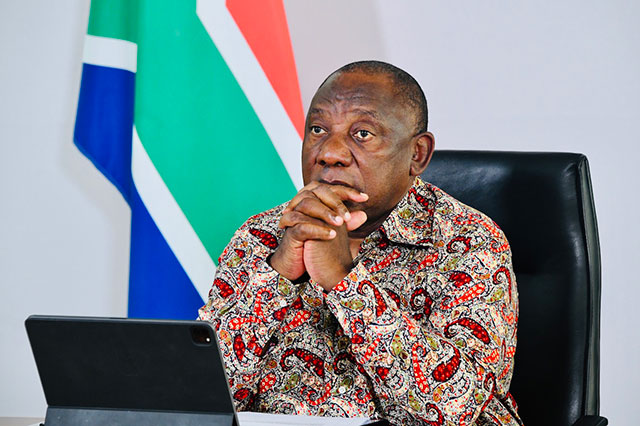Cape Town – ANC President Cyril Ramaphosa has hailed South Africa’s reclaiming of its position as the largest economy in Africa, a spot held by Nigeria in 2022 and briefly by Egypt in 2023.
Ramaphosa addressed the media during an ANC campaign event held in Kwa-Ngcolosi, outside Durban.
“We have now become the largest economy on the African continent, with Nigeria and Egypt having been up there and having their challenges and now South Africa being the largest economy in the continent.
“That position in itself attracts more investors, because they see that this is a country that is reforming various processes and it’s a country going somewhere. We have a clear destiny of where we are going as a country and that’s why we are attracting investors,” SABC quoted Ramaphosa as saying.
Meanwhile, the president has urged for decisive measures to reform the country’s economy, which he argued is monopolised by five major banks and a handful of corporations.
Unique challenges
Speaking at a dinner hosted by the Minara Chamber of Commerce at Al Baraka Bank in Durban, Ramaphosa stressed the need for collaboration between business leaders and the government to revitalise an economy battered by escalating costs and unemployment.
Highlighting the nation’s challenges, including nine years of state capture, the Covid-19 pandemic, riots, and floods, Ramaphosa emphasised the ANC’s commitment to renewal to meet current needs.
“Yes, we face unique challenges. We have endured nine lost years of state capture that weakened our economy. In the last five years alone, we’ve suffered from the Covid-19 pandemic, destructive riots that erased R50 billion from our GDP, and devastating floods. Despite these setbacks, we recognise that the ANC must undergo renewal to become an organization that is fit for purpose,” he said, according to IOL.
The report said thatRamaphosa recently endorsed the Postbank Amendment Bill, aiming to establish an independent state bank, a move long advocated by the ANC to mitigate the banking sector’s dominance.
He criticised the monopoly of FNB, Absa, Investec, Standard Bank, and Nedbank, noting their exclusionary impact on Black South Africans in the financial sector.
Follow African Insider on Facebook, Twitter and Instagram
Picture: X/@PresidencyZA
For more African news, visit Africaninsider.com
Compiled by Betha Madhomu


